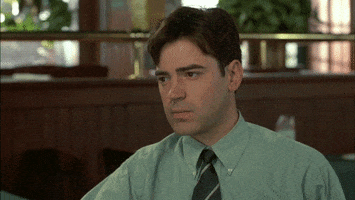- Joined
- Jul 10, 2019
- Messages
- 183
- Reaction score
- 473
Alright, maybe it wasn’t exactly promised. But there is a definite, pervading narrative at my program that PGY-2 is the bad year. You just gotta get through PGY-2. “Only a month left of PGY-2! Dude you’re almost there!!” And on and on.
And in terms of hours spent at work, PGY-2 is our worst. BUT!
I’m finding myself utterly drained by 4-5pm, pretty much every week day so far this year. So much so that I’m wondering if there’s something going on with me.
Short of some kind of organic thing, differential diagnosis for my mental state includes:
(1) cumulative effect of meaningless and ineffectual bureaucratic tasks. Getting set up in a new system (outpatient sites), x y and z things don’t work on first try, have to re contact the various and amorphous administrative people or IT that sent/set up each thing to say it’s still not working. Hopefully decreases over time?
(2) outpatient population enriched for people who don’t have major mental illnesses so much as problems with living in post industrial society with bad economy, where even if they do have a job it’s for positions like the people I’m having to contact in (1). End up listening to a fair amount of venting, feels like little is going to change.
(3) Mismatch in expectations. In PGY-2 I was working hard, but this was very much expected given the narrative at this program. In PGY-3 I guess I thought… I’d be getting to do whatever I wanted? I don’t know what I expected, obviously it’s still residency, but I guess I at least expected to enjoy it more than PGY-2 and I’m actually enjoying it less.
(4) Too many different supervisors, all assigned to me without my input. The total amount of time in supervision meetings feels like a lot, and yet somehow I think I’d prefer it all be with one supervisor even if the same total time. Even better, one that I’d pick based on well-matching styles. Obviously there are pro’s to the variety, but in keeping with a recent Office Space reference on this forum, I feel like I have 8 different bosses. 8? 8, Bob.
(5) maybe I like inpatient, not outpatient? I do think even in med school I found “clinic days” (FM, OB/Peds clinic, etc) more draining than inpatient. Maybe the “flow” of slotted appointments just doesn’t sit right with me, compared to the flow of rounding and then budgeting time as appropriate to tasks.
(6) [wild card] COVID fatigue? Man am I sick wearing masks and all this.
That’s probably all I got.
We’ll see if this is all just an extended transition to a different environment and I’ll be back to my usual chipper self soon. But I’d be interested in hearing from others who feel or have felt similarly. I suppose also this may temper expectations of any younger residents who are also eagerly awaiting this sweet, sweet outpatient time. That’s not to say dread it, young grasshoppers, but be realistic.
And in terms of hours spent at work, PGY-2 is our worst. BUT!
I’m finding myself utterly drained by 4-5pm, pretty much every week day so far this year. So much so that I’m wondering if there’s something going on with me.
Short of some kind of organic thing, differential diagnosis for my mental state includes:
(1) cumulative effect of meaningless and ineffectual bureaucratic tasks. Getting set up in a new system (outpatient sites), x y and z things don’t work on first try, have to re contact the various and amorphous administrative people or IT that sent/set up each thing to say it’s still not working. Hopefully decreases over time?
(2) outpatient population enriched for people who don’t have major mental illnesses so much as problems with living in post industrial society with bad economy, where even if they do have a job it’s for positions like the people I’m having to contact in (1). End up listening to a fair amount of venting, feels like little is going to change.
(3) Mismatch in expectations. In PGY-2 I was working hard, but this was very much expected given the narrative at this program. In PGY-3 I guess I thought… I’d be getting to do whatever I wanted? I don’t know what I expected, obviously it’s still residency, but I guess I at least expected to enjoy it more than PGY-2 and I’m actually enjoying it less.
(4) Too many different supervisors, all assigned to me without my input. The total amount of time in supervision meetings feels like a lot, and yet somehow I think I’d prefer it all be with one supervisor even if the same total time. Even better, one that I’d pick based on well-matching styles. Obviously there are pro’s to the variety, but in keeping with a recent Office Space reference on this forum, I feel like I have 8 different bosses. 8? 8, Bob.
(5) maybe I like inpatient, not outpatient? I do think even in med school I found “clinic days” (FM, OB/Peds clinic, etc) more draining than inpatient. Maybe the “flow” of slotted appointments just doesn’t sit right with me, compared to the flow of rounding and then budgeting time as appropriate to tasks.
(6) [wild card] COVID fatigue? Man am I sick wearing masks and all this.
That’s probably all I got.
We’ll see if this is all just an extended transition to a different environment and I’ll be back to my usual chipper self soon. But I’d be interested in hearing from others who feel or have felt similarly. I suppose also this may temper expectations of any younger residents who are also eagerly awaiting this sweet, sweet outpatient time. That’s not to say dread it, young grasshoppers, but be realistic.

